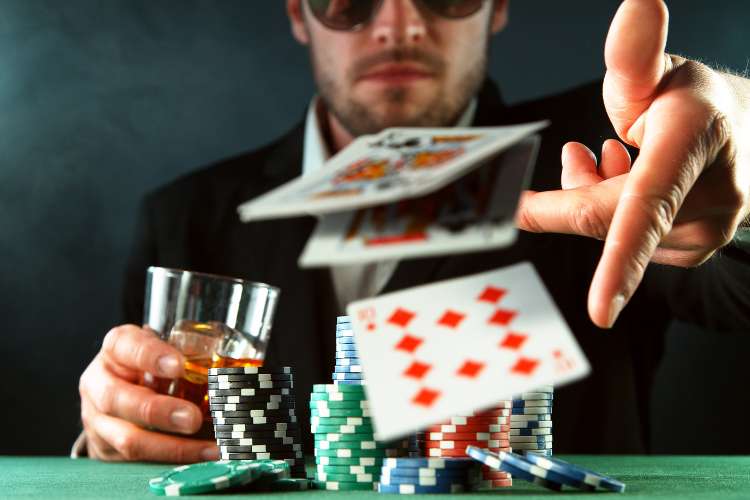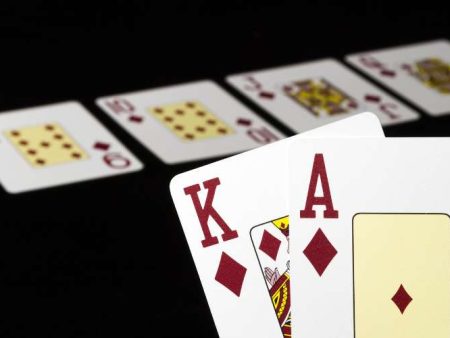
What's on this page
Video poker is a game that blends the best of skill and luck. Unlike slot machines, it requires a certain level of decision-making, strategy, and timing. For UK players, understanding the psychology behind video poker can significantly improve their gameplay.
The way we feel during a winning streak versus after a losing hand can drastically affect our approach to the game. This emotional rollercoaster can lead to avoiding poker mistakes or, unfortunately, falling into traps of impulsive decisions. The key is to learn how to manage emotions, make rational choices, and ultimately enjoy video poker responsibly.
The Appeal of Video Poker: Why We Play
Video poker offers an exciting mix of skill and chance, making it uniquely appealing to players. In many ways, it’s a game that rewards strategy and decision-making, unlike traditional slots where the outcome is entirely random.
When I play, it’s about making the right decisions: choosing which cards to hold and which to discard. The excitement of getting a royal flush or a straight flush, or even just getting a small win, creates a satisfying feedback loop. This immediate response from the machine keeps me hooked, especially when my decisions pay off.
The blend of control and chance allows me to feel like I’m actively participating in the outcome, not just waiting for luck to take over. And that’s what keeps me—and countless other players—coming back.
The Emotional Highs of Winning
There’s nothing quite like the rush of a big win in video poker. The brain releases dopamine, the “feel-good” neurotransmitter, when we win, whether it’s a small payout or a massive jackpot. This high can be exhilarating and even addictive, as we chase the next win.
The beauty of winning is that it boosts confidence and reaffirms our belief in our strategies. I often feel on top of the world after a successful hand, and that can lead to making more daring bets. It’s easy to forget that the next hand is completely independent of the last one. Winning streaks can sometimes make me feel invincible, and that’s when the risk of responsible poker gambling can become a concern.
But it’s crucial to remember that the emotional high from winning shouldn’t cloud judgment. Overconfidence can lead to higher stakes, which may not always pay off. That’s why setting a limit and sticking to it is essential for long-term enjoyment.
The Frustration of Losing: How It Affects Players
Losing, on the other hand, can have a completely different impact. A string of losses, especially after near-misses, can lead to frustration and disappointment. The feeling that “I was so close” when you almost hit a winning hand is emotionally draining.
As I’ve learned, the psychological effects of losing can be more intense than the excitement of winning. After a loss, I sometimes feel a sense of urgency or the need to make up for the lost money. This feeling is common for many players and can often lead to poor decisions, like betting more than I planned to chase a win.
This cycle of frustration can make us vulnerable to avoiding poker mistakes, which often include playing too aggressively or breaking our bankroll management rules. The key here is to accept losses as part of the game and avoid the temptation to “get it all back” in one go.
Cognitive Biases That Influence Video Poker Decisions
Our minds often play tricks on us, especially when it comes to gambling. Understanding the psychological biases at play is crucial to maintaining a clear, strategic mindset. Here are some cognitive biases that can easily influence video poker decisions:
- Gambler’s Fallacy: This bias leads us to believe that previous results influence future outcomes. For example, if I’ve had several losing hands in a row, I might believe that I’m “due” for a win, which could make me overbet.
- Loss Aversion: Research shows that the pain of losing is felt more intensely than the pleasure of winning. This can drive me to make irrational decisions in an attempt to minimize losses, such as chasing hands I would typically fold.
- Illusion of Control: This occurs when we believe we have more influence over the game than we actually do. For example, I may think that my decision-making or strategies are directly responsible for the outcome, even though video poker is still largely based on luck.
- Confirmation Bias: When we seek out information or patterns that confirm our pre-existing beliefs. If I think a specific strategy will work, I may ignore evidence to the contrary, such as a long streak of losses.
Being aware of these biases is the first step in overcoming them. I’ve found that when I recognize these tendencies in myself, I can refocus on making decisions based on strategy rather than emotions.
The Role of Bankroll Management in Psychological Stability
One of the most significant ways to protect my mental well-being while playing video poker is proper bankroll management. Setting clear limits for both wins and losses ensures that I don’t get too caught up in the highs or lows of the game.
Here’s how I manage my bankroll to stay in control:
- Set a Budget: Before I start playing, I decide how much I’m willing to lose. This amount is treated as entertainment money, not something I rely on winning back.
- Stick to Limits: If I reach my loss limit, I stop playing for the day. Similarly, if I hit my win goal, I walk away before I risk losing it.
- Bet Within My Means: I avoid going beyond my set budget, even when I’m feeling lucky. This helps keep emotions in check and reduces the risk of going on tilt.
By controlling my spending and setting realistic expectations, I can play video poker without allowing the game’s emotional swings to dictate my decisions.
Developing a Winning Mindset
A winning mindset is all about staying disciplined and making logical decisions rather than emotional ones. Video poker, like any game of skill, requires a strategic approach.
To develop a winning mindset, I focus on these core principles:
- Patience: Understanding that not every hand will result in a win is crucial. I need to be patient and avoid getting frustrated.
- Strategic Play: I always play with a strategy in mind, knowing which hands to hold and when to discard. There’s no room for impulsive decisions in video poker.
- Stay Focused: I remind myself that video poker is a long-term game. I’m not in it for a quick win but to enjoy the process and maximize my chances of success.
When I stay disciplined, I’m able to avoid the common pitfalls and stick to my plan, leading to a more enjoyable experience.
The Impact of Responsible Gaming on Mental Well-Being
Responsible gaming plays a significant role in maintaining my mental well-being while enjoying video poker. Setting boundaries and being mindful of my gameplay ensures that I don’t get overwhelmed by emotions, whether I’m winning or losing.
Here’s how responsible gaming supports my mental health:
- Setting Limits: By setting deposit limits and time constraints, I avoid spending more time or money than intended.
- Taking Breaks: I’ve learned that taking breaks helps reset my mind, especially after a losing streak.
- Seeking Help: If I ever feel overwhelmed by the emotional rollercoaster of the game, I know I can access responsible gambling resources.
Responsible gaming isn’t about restricting my enjoyment; it’s about maximizing it in a healthy way.
How to Stay Focused and Avoid Tilt
One of the hardest challenges in video poker is avoiding tilt—the emotional state where frustration leads to irrational decisions. After a few losses, I might be tempted to chase my losses or make larger bets to recoup what I’ve lost.
To avoid tilt, I focus on these strategies:
- Recognize the Signs: If I start feeling angry, frustrated, or overly emotional, I take a break.
- Relaxation Techniques: Deep breathing and mindfulness exercises help me reset after a loss.
- Walk Away: Sometimes, stepping away from the game for a few minutes gives me a chance to regain focus.
By staying aware of my emotions and taking steps to stay calm, I can make better decisions and continue enjoying video poker in a healthy way.
The Future of Video Poker Psychology
Looking ahead, I see exciting developments in how we approach the psychology of video poker. With advancements in AI and machine learning, it’s possible that future tools will help players improve their mental resilience and make better decisions.
Other developments could include:
- AI Coaching: Personalized tips to help players avoid common mistakes and improve strategy.
- Gamification: Games designed to keep players engaged without risking their well-being.
These innovations could help players enhance their gameplay while promoting responsible gaming.
Conclusion
Understanding the psychology of winning and losing in video poker is key to becoming a better player and maintaining a healthy relationship with the game. By managing my bankroll, staying focused, and practicing responsible poker gambling, I can enjoy the highs without getting lost in the lows.
Video poker is a game of skill, patience, and strategy. When I embrace these principles, I can play with confidence and avoid the traps that come with emotional decision-making. The goal is always to enjoy the game, make smart choices, and stay in control—no matter the outcome.





